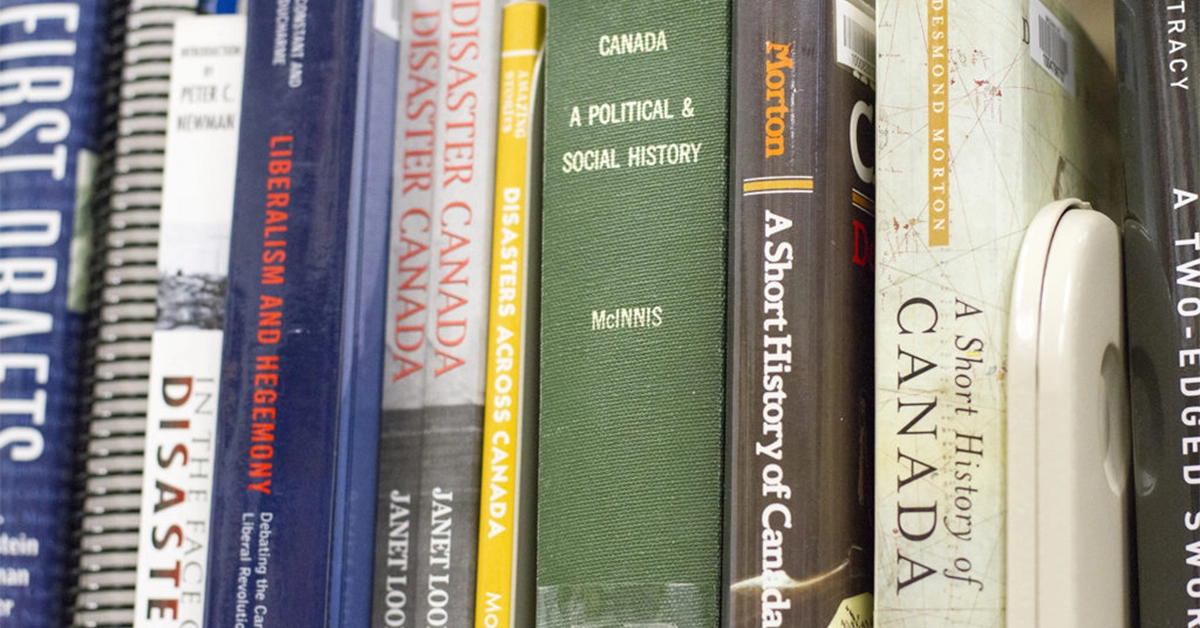What is the History Club?
Predominately, we’re a club of history students. We do peer and academic support. Really, we just came together as a study group and then later we thought, ‘Why not organize it so we can host events and things like that as well?’ Now, we just get together for exams, and we study together with anybody who has some questions about history. We are very close with the faculty and we talk with them a lot. It’s kind of about fostering a relationship between the students and the faculty to generate interest in history as a major.
Does the history club help you achieve better grades in history courses?
We like to think so. I know it’s been beneficial for me. It’s an outlet for asking questions and talking about the things that you’re studying. Right now, for example, I’m writing my thesis and I’m able to sit and explain what I’m researching to members of the club. Just explaining that to them helps me develop my paper. We also edit each other’s papers as best as we can. We offer suggestions and things like that. I think it helps.
How does that deviate from the Writing Centre, which is also intended to help students with their papers?
Personally, I never really wanted to go to the Writing Centre. It was intimidating for me, and I always preferred to ask somebody in my class or go straight to the professor in my class and ask them for help. I feel that it’s just easier to talk to another student who has the personal experience of doing this.
The SAMU website states that the History Club provides an environment for history students and students interested in history to form a sense of community. How is this important?
A lot of people like to talk about their disciplines. They get together and they discuss what they’re doing in their classes and all that sort of thing.
We wanted to form an environment where we can meet up and we can talk about our interests.
We also hold events like movie nights and that sort of thing. It’s just a way for everybody that has an interest to get out and talk with people that have similar interests.
Some students may not know the difference between the History Club and the Classics Club. Could you explain it?
We’re really close with the Classics Club. Most history majors are classics minors, like me. Classics is basically ancient history, while history is medieval up to modern. So, the difference between them is that classics focuses more specifically on Ancient Rome and Ancient Greece. For history, we tend to focus mostly on European, but it also goes into things like Asian and Middle Eastern history. We generally encourage people to interact with both clubs.
Some scholarly communities are criticized for being biased. For example, there are programs meant for history in general, but they put more focus on Western history. What is the History Club doing to ensure that this doesn’t happen?
We are open to discussing any type of history that people are interested in. But because of where we are, most people are just interested in similar things, such as European history or Western history. Also, the faculty’s direction is mostly focused on Western and European history because we’re a small university. I wouldn’t say we are that exclusive in what we study; it’s just that personal interests tend to lie in Western history.
What are the club’s future goals?
We want to expand the membership base and get the word out about history as a major. A lot of people are driven away from history because they have these misconceptions that it’s too much reading and too much writing. We’re trying to talk to people about how interesting it is. Anybody who’s a history major, or anybody who is not a history major but has an interest in history or is considering it as a major, is welcome to join us.
This interview has been edited for length and clarity.
Photo by Madison Kerr





0 Comments